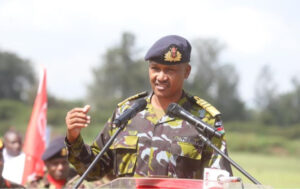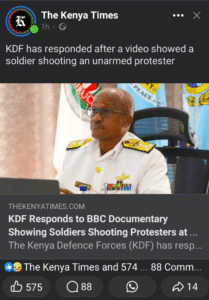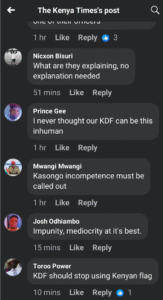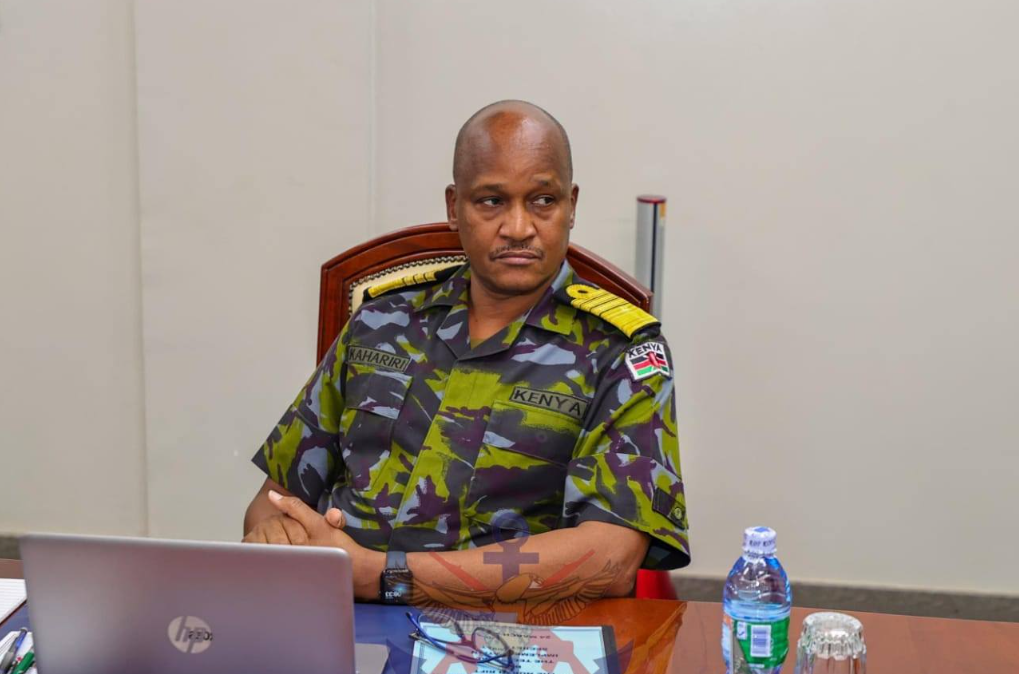The Kenya Defence Forces (KDF) has finally responded to explosive allegations raised in the BBC documentary “Blood Parliament,” which implicated its officers in the deadly June 25th protest shootings.
In a defiant statement, KDF claimed that the Independent Policing Oversight Authority (IPOA) has never investigated or questioned any of its personnel over the killings. Rather than clearing the air, this revelation has only fueled more public anger, with many Kenyans questioning whether there is something deeper being hidden from the public.
The military insists that it operates strictly within constitutional boundaries. However, critics remain unconvinced. The BBC documentary presented chilling footage and evidence that showed security forces, including possible KDF officers, firing live bullets at unarmed protesters who had stormed Parliament.

Chief of Defence Forces (CDF) General Charles Kahariri during the groundbreaking ceremony of the KDF Modern Housing unit at 3KR Military barracks in Lanet Nakuru county on May 18,2024. [Standard]
Kenyans on social media are demanding real answers. Many are asking if KDF has nothing to hide, why not welcome an independent investigation to clear their name once and for all? Others have pointed out that IPOA’s silence could be a sign of political interference, suggesting that higher powers might be preventing a proper investigation from taking place. This fear of a cover-up is growing, especially given Kenya’s history of delayed justice and cases where powerful institutions evade accountability.

A screenshot from the Kenya Times Facebook page speaking of KDF dodging accountability.
The timing of KDF’s statement could not be worse. Public trust in security forces is already fragile, and instead of rebuilding confidence, their defensive tone has only made matters worse. Many citizens now see the response as a weak attempt to deflect accountability rather than a genuine effort to address serious allegations.
Big questions remain unanswered. Will the government ever admit that mistakes were made? Will anyone be held responsible for the deaths of innocent protesters? Or will the findings of “Blood Parliament” be buried and forgotten like many other painful chapters in Kenya’s history?

Some of the reactions from Kenyans regarding the matter.
International attention is also growing, and Kenya’s reputation is now on shaky ground. Human rights groups are watching closely, and the families of the victims are still waiting for justice. In a world where information spreads fast and public pressure can no longer be ignored, vague denials and half-hearted statements will not satisfy an angry nation. One thing is clear, the Kenyan people are not ready to move on without the truth. They want accountability, and they want justice. The world is watching, and this time, it might not be so easy to sweep the truth under the rug.



